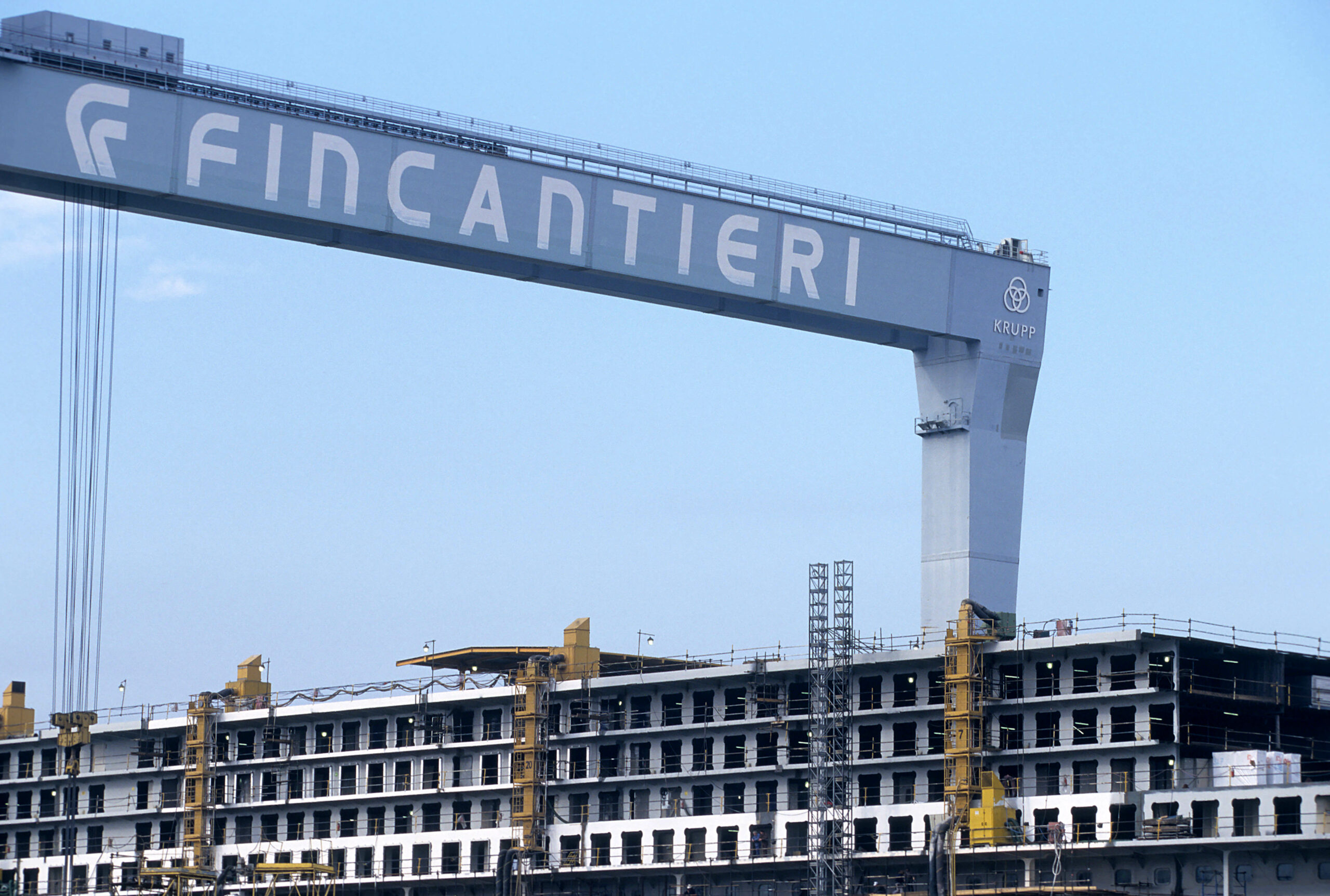Fincantieri joins forces with Newcleo and Rina for nuclear energy ships

Fincantieri, Newcleo and Rina have signed an agreement for a feasibility study to study nuclear naval propulsion, exploring the application of a closed mini-reactor design for use on large vessels
Fincantieri teams up with Newcleo and Rina to study nuclear naval propulsion.
The shipbuilding group of Trieste has signed an agreement with Newcleo, a nuclear technology company, and with Rina, a multinational ship inspection, certification and classification company, to jointly carry out a feasibility study for nuclear applications in the naval sector, exploiting newcleo's lead-cooled small modular reactor (SMR) technology.
Using clean nuclear energy to power ships would help rapidly decarbonise an industry grappling with huge consumption of fossil fuels and resulting carbon emissions, the joint statement said.
Just last week the naval industry, through the International Maritime Organization (IMO), approved the new objectives for the reduction of greenhouse gas emissions at the Mepc (Marine Environment Protection Committee), to zero them by or around 2050, the note still recalls.
“Today Fincantieri reaffirms its vocation to be a pioneer and catalyst for progress in the maritime sector with cutting-edge, efficient and sustainable technologies. The agreement allows us to explore the possibility of adding a new and visionary solution among those at our disposal to achieve the ambitious decarbonisation goals that the industry has set itself” commented Pierroberto Folgiero , CEO and General Manager of Fincantieri.
Already in March of last year, Fincantieri had signed a memorandum of understanding with Rina to enhance their mutual skills, aimed at developing synergies in the field of alternative fuels, carbon capture and renewable energies.
All the details.
THE USE OF A CLOSED MINI-REACTOR ON LARGE SHIPS
Therefore Fincantieri, Rina and Newcleo have signed an agreement to study how nuclear applications can help decarbonise the shipping industry, exploiting the technology of small lead-cooled modular reactors (SMR) of Newcleo, a company engaged in the development of innovative IV generation reactors that use existing nuclear waste as fuel.
Specifically, the use of the lead-cooled fast reactor (LFR) of Newcleo – explains the joint note – would involve the installation of a mini-enclosed reactor on ships, which would function in the same way as a small nuclear battery capable of producing an electrical power of 30 MW. This would require sporadic refueling (only once every 10-15 years), limited maintenance and an end-of-life reactor replacement.
“Since our inception, Newcleo's ambition has been to help accelerate decarbonization and to provide clean, sustainable and affordable energy to meet the needs of communities and businesses” commented Stefano Buono, president and CEO of Newcleo. “Furthermore, small modular nuclear reactors will be the most efficient solution for applying nuclear energy to civil naval propulsion” according to Ugo Salerno, President and CEO of Rina.
GOAL: DECARBONIZATION OF MARITIME TRANSPORT
Although the shipping industry still transports 90% of the world's goods and the IMO's fourth 2020 greenhouse gas study confirms that its carbon dioxide emissions are less than 3% of total man-made CO2 emissions, the actions of the big players in this sector have the potential to drive markets and generate trends.
According to the three companies, the use of nuclear energy on ships safeguards the marine ecosystem in the event of an accident. In fact, with newcleo's project, the liquid lead inside the reactor would solidify as it cooled in contact with cold water, enclosing the reactor core in a solid casing and containing all radiation thanks to the shielding properties of lead.
Ultimately, Newcleo's marine prolusion reactors would eliminate the current need for frequent refueling and, at the end of their life, the entire LFR unit would simply be removed and replaced with a new one, while the spent unit would be hauled away for decommissioning and reprocessing.
This is a machine translation from Italian language of a post published on Start Magazine at the URL https://www.startmag.it/smartcity/fincantieri-si-allea-con-newcleo-e-rina-per-le-navi-a-energia-nucleare/ on Tue, 25 Jul 2023 14:06:39 +0000.
